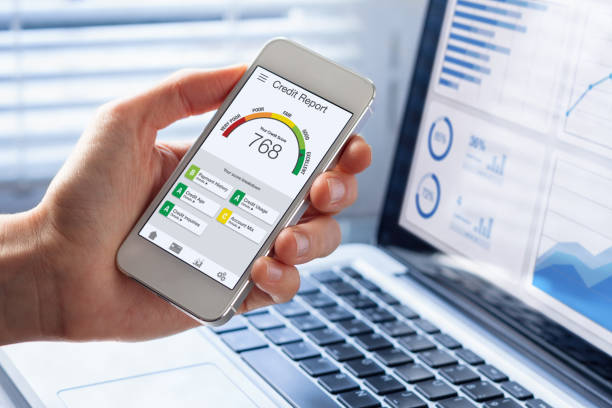Are you looking to increase your credit score the quickest way possible? I’ve reviewed hundreds of loan applications that get declined because of a low credit rating. The good news it that a low credit score isn’t the end of the world and can be increased. This post will explain exactly how you can increase your credit score quickly and effectively so you can borrow money for yourself or your business as soon as possible.
Understanding Your Credit Score
Before learning how to build up your credit score this year it is important to understand what a credit score is, how it is determined and how a strong credit score will benefit you.
A credit score is a numerical value typically ranging from 300-900 which indicates your overall financial credibility. This rating is what creditors and lenders will use to determine whether or not the applicant is likely to repay the borrowed funds.
Equifax, Transunion and Experian are the three largest credit reporting agencies across North America. These credit agencies maintain reports including information on your outstanding debts, payment history, how much credit you have available and how much much of this credit you actually utilize.
Creditors and lenders use this credit score to determine the risk associated with repayment when lending out funds to a business or individual.
What is a good credit score?
300-579: Poor.
580-669: Fair.
670-739: Good.
740-799: Very Good.
800-900: Excellent.
How are Credit Scores Impacted?
Your payment history – This is the most impactful metric for determining your credit score. A history of late repayments on your credit cards, mortgage or even cell phone bill will negatively impact your rating. Be sure to pay these bills on time or at the very least make the minimum payment on your credit card each month to avoid a late payment being posted to the credit rating agency. Even if your credit rating is relatively strong, a creditor will still see your late payment history and may ask for clarification as to why the facility was not paid on time.
The length of your credit history – The longer you have had a credit card, line of credit or personal loan the better. Credit agencies will be able to see when your credit facility was activated and the longer the history of timely payments the greater chances your score will increase. Creditors would prefer to see a credit card open within at least 1 year with a history of timely payments to feel comfortable lending additional funds to the borrower. If you are a first time borrower, lenders may require you to open a secured credit card which you will need cash to secure the debts. For example, you would deposit $1,000 into a savings account in which the bank will place on hold. In exchange, a bank will provide you with a $1,000 limit credit card in which you can use to build your credit. The good news is the $1,000 will earn interest as long as the credit card is active. Within 6-12 months your bank will typically release the secured funds to you and you may continue to use the credit card as you were. At this point you may even be eligible for a credit limit increase as long as there is no history of late payments!
Credit seeking behavior – Credit agencies will also see how many inquiries were placed upon your name. For example, if you recently applied for an auto loan and were denied. Borrowers will make the mistake of trying the same application through multiple banking institutions. Each time a credit check is performed it is reported as an inquiry. There is no magic number to how many inquiries are acceptable within a given time frame. However, it is important to note that in the lenders perspective, if they see 5 inquiries within a short time frame from different financial institutions it may raise concern as the borrower may be a credit seeker. Credit seekers are individuals who apply for excessive amounts of unsecured credit through multiple institutions. Large amounts of unsecured debt exposure creates significant risk for the lender.
Hard credit inquiry vs. soft credit inquiry– It is important to note the difference between a hard and soft credit check. A hard credit inquiry is also known as a “hard pull” or “hard credit check”. This particular credit inquiry is conducted when a borrower is trying to access new credit. Ex. Line of credit, personal loan, vehicle loan, mortgage, etc. On the other hand, a soft credit inquiry or “soft pull” is conducted to see if the applicant reaches a certain guideline for a specific product or service. For example, cell phone providers have minimum credit score requirements in order to offer you a cell phone contract. Banks will offer you a preapproved credit card increase if your credit score is increasing over time. When an employer hires you they will typically run a background check on you as well as a “soft pull” to better understand who they’re hiring. Note that hard credit inquiries will affect your credit score whereas a soft credit inquiry will not. If you have a excellent credit rating you will not need to worry about “hard pulls” as borrowers with strong credit scores are not penalized for seeking credit that they received an approval for. However, if you have a poor credit rating and a hard credit inquiry is initiated then your score may drop harshly.
The Benefits of a High Credit Score
Cheaper to borrow money – Interest rates are determined by the risk associated with the loan. If the borrower has a proven track record of repaying their debts and making timely payments then the lender will feel more comfortable offering a lower interest rate. Ultimately, lenders can only tolerate a reasonable amount of risk. Some private lenders will lend to high risk borrowers however the interest rates will be significantly higher to balance out the potential risk of default.
Higher credit limits – Lenders will offer higher credit limits on credit cards, personal loans and unsecured lines of credit. A higher limit is beneficial in the event the borrower needs to access emergency funds. A low credit score only offers limited access to credit.
Special credit card offers – Lenders will appreciate that you repay your debts responsibly and will offer you a lower annual interest rate on your credit card.
Stronger ability to find employment – Individuals will find it easier to seek employment as employers will run a background check on a prospective new hire.
Improved chances of renting a home– Landlords will typically run a credit check on you to see if you have a credit score that meets their minimum expectations. A poor credit score will make it less likely for a landlord to offer you a lease agreement as they will become worried you may not pay your rent on time.
How to Improve Your Credit Score
Now that you understand what a credit score is, how it is calculated and the benefits of a strong credit score it important to know how to increase this score efficiently and effectively.
- Payoff your credit card balance in full each month – When possible, payoff your credit card balance in full and avoid only making the minimum monthly payment each month. Paying off the credit card in full will show lenders and reporting agencies that you are not spending more than what you can afford.
- Lower your credit utilization rate – Credit utilization is % of your total available revolving credit limit. Example: If your credit card limit is $1,000 and you spend $800 per month on average on this card before paying it off – your credit utilization is 80% in this case. It is recommended to keep your credit utilization below 30% on a monthly basis. This indicates to credit agencies that despite having access to a high level of credit you are only using a small % of this available limit. This indicates that the borrower has self control with their spending and are trustworthy with higher levels of unsecured credit.
- Don’t cancel your credit cards – Cancelling a credit card you’ve had for years isn’t ideal as you are effectively erasing years of credit history. Credit reports will show how many months the credit card has been reported. If you cancel your old card and apply for a new card you are essentially starting from scratch. Creditors want to see long history of timely payments to feel more comfortable lending to potential borrowers. If you want to switch your card to a new card type or with another institution it is advisable to reduce your current credit limit to the lowest possible limit and apply for a second card. This way your existing card repayment history will remain on your credit bureau report.
- Initiate preapproved credit limit increases – If you have a track record of repaying your credit card balance in full each month over a long period of time your bank will most likely offer you a credit limit increase. These are preapproved offers and this increase will not require a credit application. The benefit to this is that if you maintain the same level of spending you will effectively lower your credit utilization. It is highly recommended to have these preapproved offers actioned as soon as possible.
- Payoff past-due payments – Past due payments are negatively affecting your ability to increase your credit score. Payment history makes up roughly 25% of your total credit rating. Consider paying off aged debt before incurring any new debts.
- Expand your credit products – Individuals who carry more credit products and make timely payments are increasing their credit rating faster than someone with only a credit card. For example, an individual with a mortgage, car loan, RRSP loan and a home equity line of credit will increase their credit faster than someone with only a student loan assuming they were both making timely payments.
- Regularly check your credit report – It is important to check your credit report on a monthly basis to ensure there are no outstanding collections or errors on you report. Outstanding collections will hurt your credit score significantly. If you have an outstanding collection alert on your credit report it is important to contact your credit agency to have it removed. It is not uncommon to have a false collection alert on your bureau that is negatively impacting your credit score.



